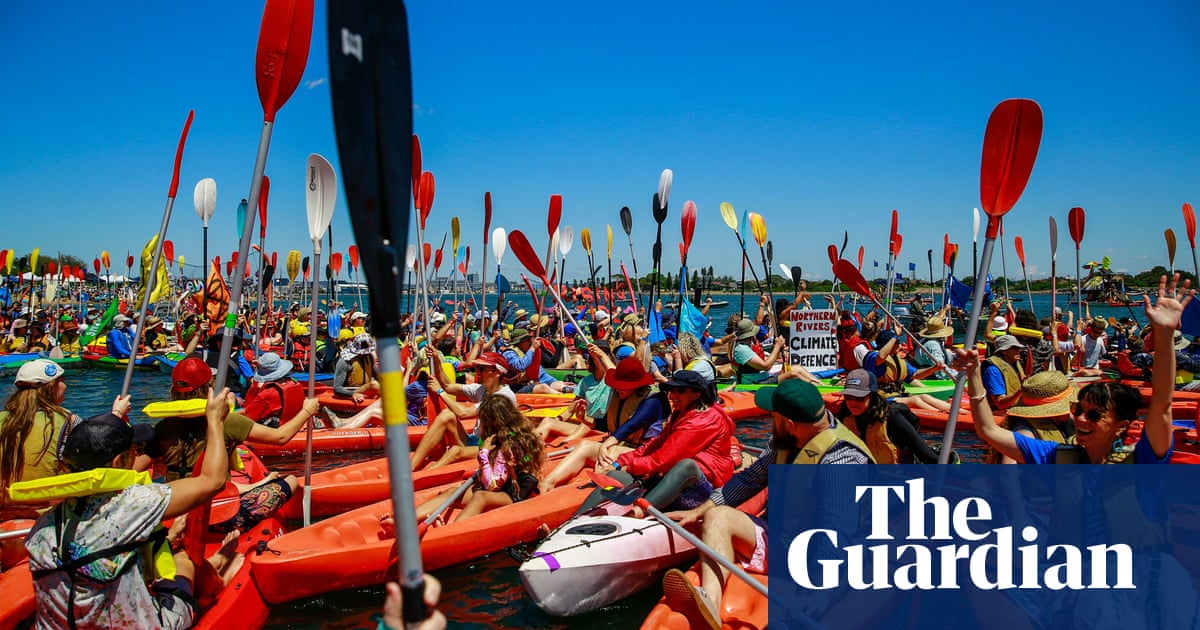The New South Wales police has won its legal challenge against a protest planned to blockade coal exports in Newcastle, with the judge citing the interruption to the port as an âimpositionâ.
Organised by a group called Rising Tide, the protest would have involved activists paddling into the Port of Newcastle on kayaks and rafts to stop coal exports from leaving Newcastle for 30 hours.
The group called the protest the âPeopleâs Blockade of the Worldâs Largest Coal Portâ and was planned to take place in late November. The four-day âprotestivalâ was expected to attract 5,500 demonstrators and was scheduled to take place alongside the blockade, and include music performances from John Butler and Angie McMahon.
Police launched a challenge against the organiserâs Form1 application â which would protect them from prosecution while blocking the waterway – in the supreme court last week. They cited safety concerns, the interference with other members of the publicâs right to use the space, and the disruption to the coal industry.
Last year, the organiserâs held the same protest for the same amount of time. The police accepted the organiserâs Form1 application to blockade the port for 30 hours.
However, during this protest, the group continued to blockade the port beyond the agreed deadline, leading to 109 arrests. This drew international media attention, with a 97-year-old church minister among those charged.
Justice Desmond Fagan sided with police and issued a prohibition order, saying the evidence showed it was âhighly likely, to the point of near certaintyâ that the protesters had planned to stay beyond the agreed deadline again to draw maximum attention to their cause.
In his judgement, he also expressed safety concerns for the participants and said the impact on others was âexcessiveâ.
âA 30-hour interruption to the operations of a busy port is an imposition on the lawful activities of others that goes far beyond what the people affected should be expected to tolerate in order to facilitate public expression of protest and opinionâ¦,â Desmond said.
If the activists decide to still carry out the blockade despite the prohibition order, they will not be protected from prosecution.
Police assistant commissioner Dave Waddell told the court during the proceedings that if this happened the police would arrest the protesters as soon as they entered the channel.
Neal Funnell, the lawyer for Rising Tide, had argued during the proceedings that the organiserâs had put adequate safety precautions in place, and that the organisers had planned to advise protesters to leave the water once the 30-hours was up to avoid arrest.
The organiserâs had planned to blockade the port for 50 hours, but revised this down to 30 hours during the policeâs legal challenge.
Rising Tide had organised the protest to demand the government immediately cancel all new fossil fuel projects and end all coal exports from Newcastle by 2030.
They were also calling for the government to tax fossil fuel export profits at 78%, and to put that money towards community and industrial transition away from fossil fuels.



